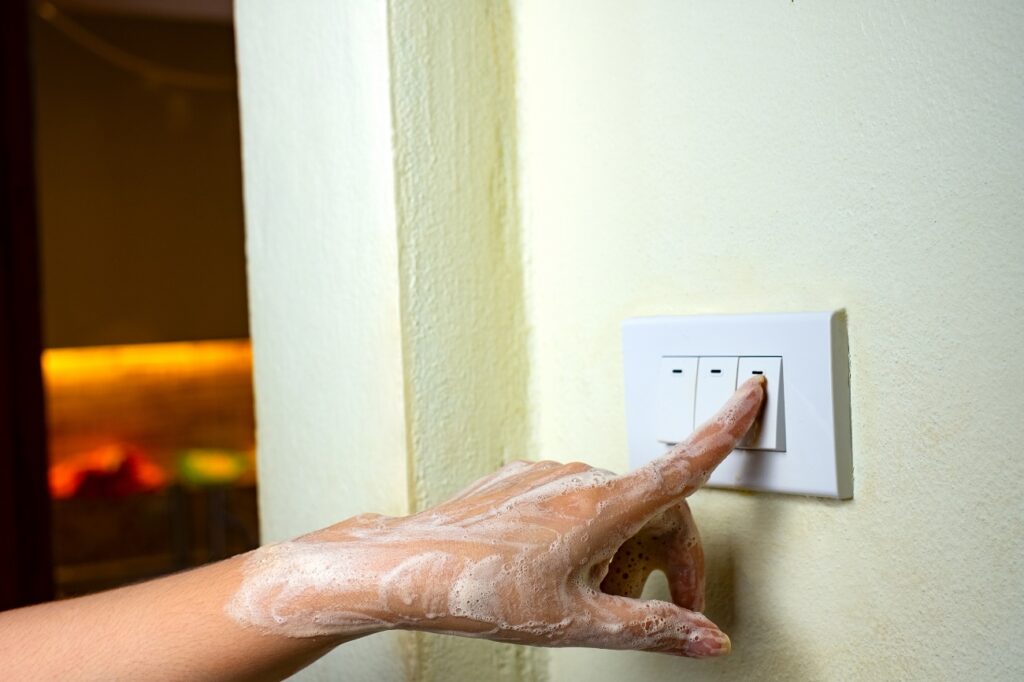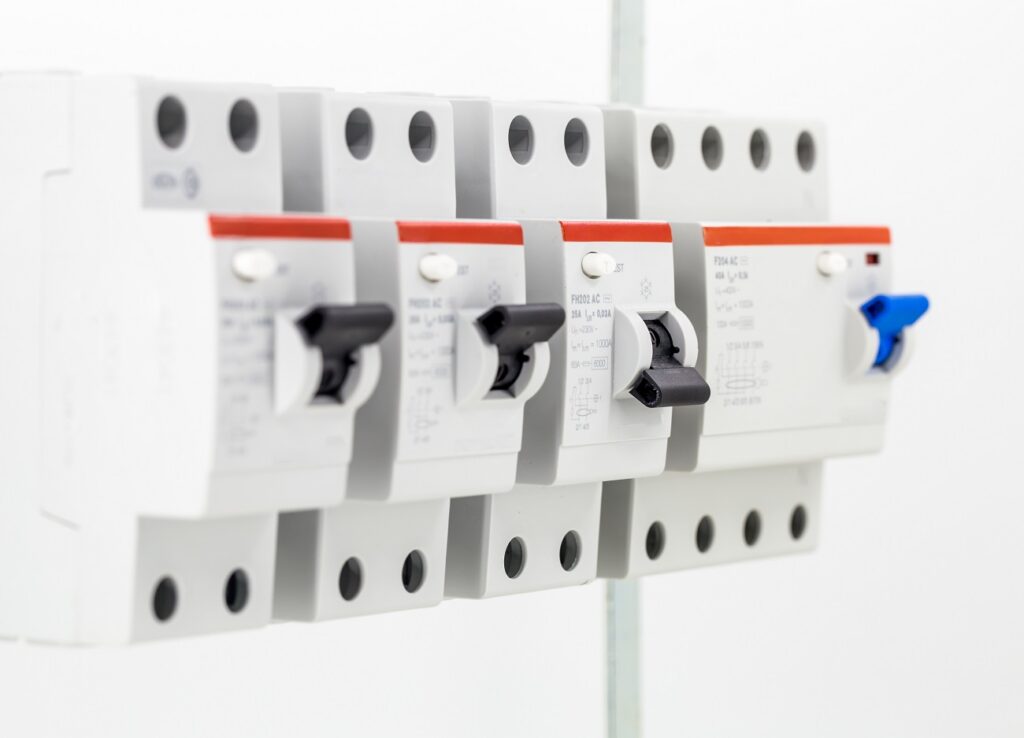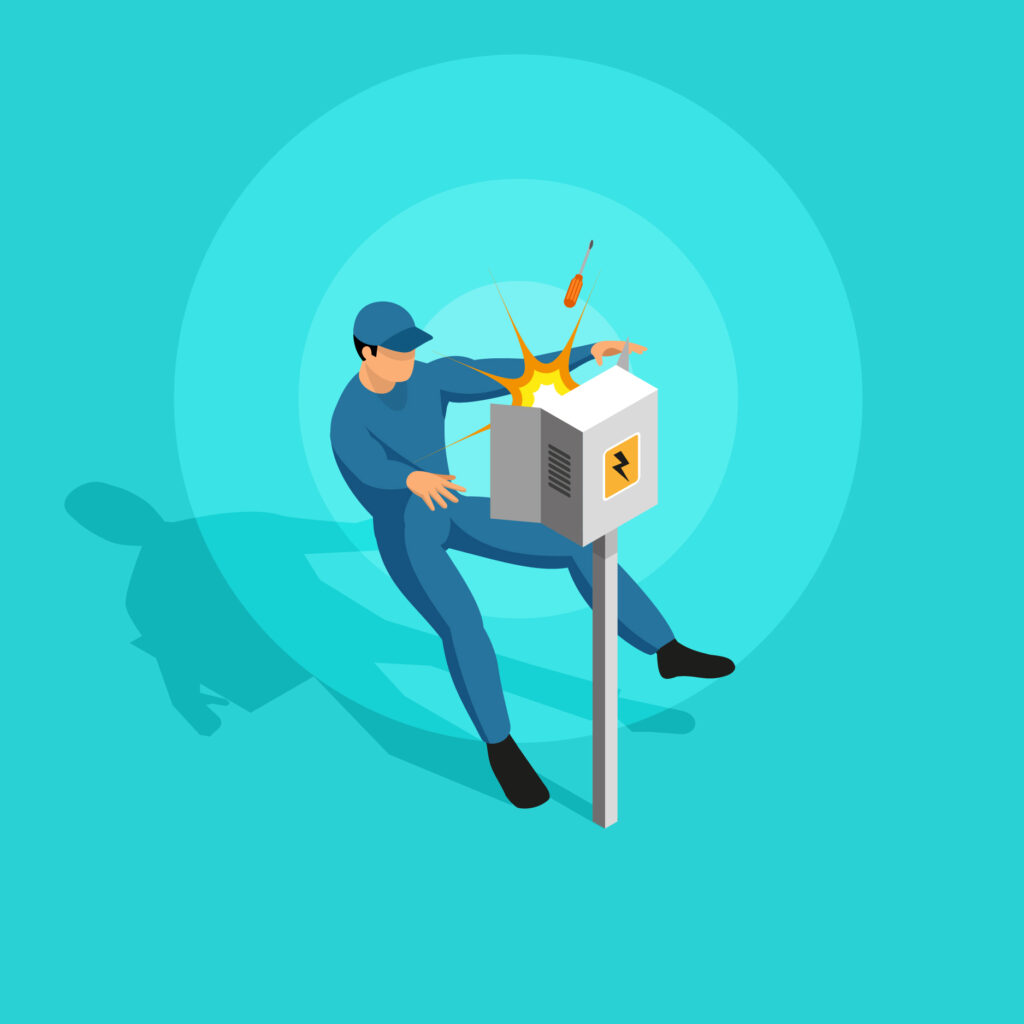Even though water is one of the primary resources needed to generate energy, water and electricity never go together! And since monsoon season is a wet season, it is very important to take electrical safety precautions throughout the season.
We frequently hear about accidents caused by electrical shock, fires caused by short circuits, etc. Rains obviously cause more electrical damage than any other season. Thus, electrical safety during monsoon is must. Electrical risks are deadly, and they can take a great number of lives. Everyone should be aware of the electrical safety precautions during rainy season.
Electrical Safety Tips During Monsoon Season
Most of the time, these accidents are due to people disregarding electrical safety regulations. To protect your home and your loved ones, in this article, we are going to discuss monsoon electrical safety tips.
By following these tips, you may prevent fatal accidents in your home.
01. Never Turn On or Off the Switches with Wet Hands

The simplest rule is to never touch any fuse or switch with wet hands when it is raining. It’s a big NO. Never use a wet hand to turn On or Off the switch of the geyser, washing machine, mixer/grinder or any other electrical appliance.
02. Prevent Dampness and Leakages of Water in the House

Make sure water doesn’t encounter your electrical meter or the wiring of your house. This happens mostly due to leaks or poor rain drainage systems in the house.
03. Shut Windows Near Plug Points When it Rains
Rain droplets can enter the plug point if the window close to the point is open when it is raining. The droplets can make the plug point vulnerable. Shutting windows near plug points is important an electrical safety during monsoon.
04. Switch Off Electronic Devices During Thunderstorms

It is good to turn off electrical devices during severe thunderstorms to avoid a fire mishap.
05. Switch Off the Gadgets During Power Fluctuations
Abrupt power cuts and cable faults are common problems during the rainy season. Constant power fluctuations can damage your electronic items. Hence it is advisable to switch them off if you notice fluctuation in power.
06. Prevent Exposure to Live Wires and Electrical Parts

Make sure no electrical wires are hanging loose around your house. Keep children out of reach of such wires. This can be fatal.
07. Use the Right Size and Type of Electrical Wire

Always use electrical wires of adequate capacity with ISI marks. Similarly, all electrical appliances, like Air Conditioners, washing machines, Microwave ovens, Water heaters, mixers-grinders, etc. should have an ISI mark. If you are not aware of which capacity of wire is to be used then please consult the electrical consultant or contractor.
08. Remember to Unplug the Appliances After Use

Make sure to unplug the appliances after use. We often forget to unplug our appliances, and this is one of the most dangerous mistakes we make.
09. Check Your Old Wiring Capacity

If you are adding additional electrical appliances, check whether your old wiring has the capacity to bear the additional electrical load of these appliances or not. Always get it checked by a licensed electrical contractor. Also, get the test report from him and submit the test report to the local power supply company. If the connected electrical load is greater than the sanctioned or contracted load, ensure to get it legalized to avoid possible damage to the wires and appliances, thereby avoiding accidents caused by it.
10. Fix Overcurrent Protection Devices like MCB, ELCB, and Fuse

Always use a Miniature Circuit Breaker (MCB), Earth Leakage Circuit Breaker (ELCB) fuse, etc. that carries an ISI mark of appropriate capacity for all electrical appliances. It is advisable to use an ELCB to protect yourself from electrical shocks, particularly during monsoons and in humid environments.
11. Never Stand Around Electrical Poles

Never stand around any electrical poles especially when it is raining or when the area around the pole has standing water.
12. Do not Touch the Electrical Poles in the Monsoon

Never touch the electrical poles, their earthing wires, any street light poles, or any electrical box during the monsoon. People in rural areas have the habit of tying their animals to electrical poles or street lamp posts. It is better to avoid such practices as the poor animal can lose its life, in the event of an electricity-caused mishap. At the household level, avoid using metallic wire or strings for drying clothes.
13. Prevent the Hazards of Electricity on Construction Site

If any construction activity is going on, always maintain a safe distance and margin from the nearest electrical conductor lines, poles and between buildings under construction or scaffolding.
14. Be Careful with the Height of Your Vehicle

Never Park your vehicles below or near electrical lines or transformers. Take into consideration the height of your vehicle and be cautious while moving it below the electrical conductors.
15. Never Throw Waste and Scrap on Power Line
Never throw anything like water, metallic yarn, or ant metallic scrap on live power line or electrical poles from a window or balcony as it could shock you.
16. Don’t Make Illegal Connections

Never try to have an unauthorized connection by anchoring the live wires illegally. Such acts invite accidents.
17. Hire a Licensed Electrician

If you feel there is any need for a repair, get it done immediately by competent and authorized licensed persons only.
18. Inform the Power Supply Company of any Electrical Faults Around Your House

If you notice a tilted electrical pole or a broken electrical wire, inform the is broken, never touch it. Make sure to inform the power supply company immediately and do not voluntarily try to set things right. If you find any short circuits or sparks taking place either in the electrical meter, pole, or in the transformer near your area, please inform the power supply company immediately.
19. Get Personal Accident Insurance

Accidents can happen within the safe walls of your house, which not only cause physical injuries but result in financial crises as well. So, it is better to get a personal insurance policy that covers the policyholder and his or her family members in case of an accident.
Conclusion
These electrical safety tips can help you prevent accidents brought on by electrical hazards like electrical shocks and fire, which can be more dangerous than you might think. Emergencies never come up with prior intimations. Regardless of how many safety precautions are in place, accidents are always a possibility. Hence, always have emergency phone numbers on hand.
And before you go, don’t forgot to watch electrical safety tips video








